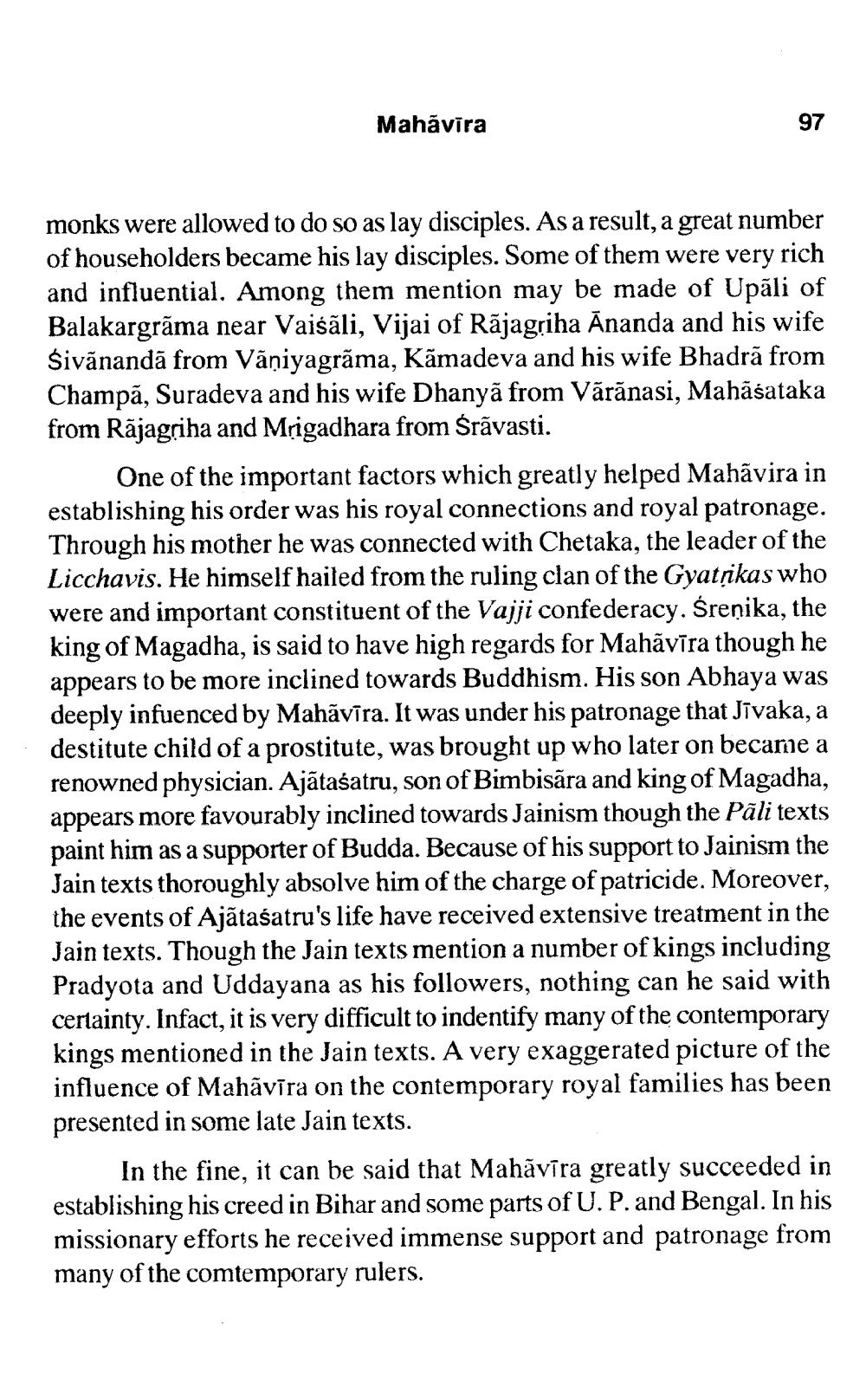________________
Mahăvira
97
monks were allowed to do so as lay disciples. As a result, a great number of householders became his lay disciples. Some of them were very rich and influential. Among them mention may be made of Upáli of Balakargrãma near Vaišãli, Vijai of Rajagriha Ananda and his wife Śivānandā from Vāņiyagrãma, Kamadeva and his wife Bhadrã from Champã, Suradeva and his wife Dhanyã from Vārānasi, Mahāśataka from Rājagriha and Mrigadhara from Śrāvasti.
One of the important factors which greatly helped Mahavira in establishing his order was his royal connections and royal patronage. Through his mother he was connected with Chetaka, the leader of the Licchavis. He himself hailed from the ruling clan of the Gyatsikas who were and important constituent of the Vajji confederacy. Śreņika, the king of Magadha, is said to have high regards for Mahāvīra though he appears to be more inclined towards Buddhism. His son Abhaya was deeply infuenced by Mahāvīra. It was under his patronage that Jivaka, a destitute child of a prostitute, was brought up who later on became a renowned physician. Ajātaśatru, son of Bimbisāra and king of Magadha, appears more favourably inclined towards Jainism though the Pāli texts paint him as a supporter of Budda. Because of his support to Jainism the Jain texts thoroughly absolve him of the charge of patricide. Moreover, the events of Ajātasatru's life have received extensive treatment in the Jain texts. Though the Jain texts mention a number of kings including Pradyota and Uddayana as his followers, nothing can he said with certainty. Infact, it is very difficult to indentify many of the contemporary kings mentioned in the Jain texts. A very exaggerated picture of the influence of Mahavira on the contemporary royal families has been presented in some late Jain texts.
In the fine, it can be said that Mahāvīra greatly succeeded in establishing his creed in Bihar and some parts of U. P. and Bengal. In his missionary efforts he received immense support and patronage from many of the comtemporary rulers.




